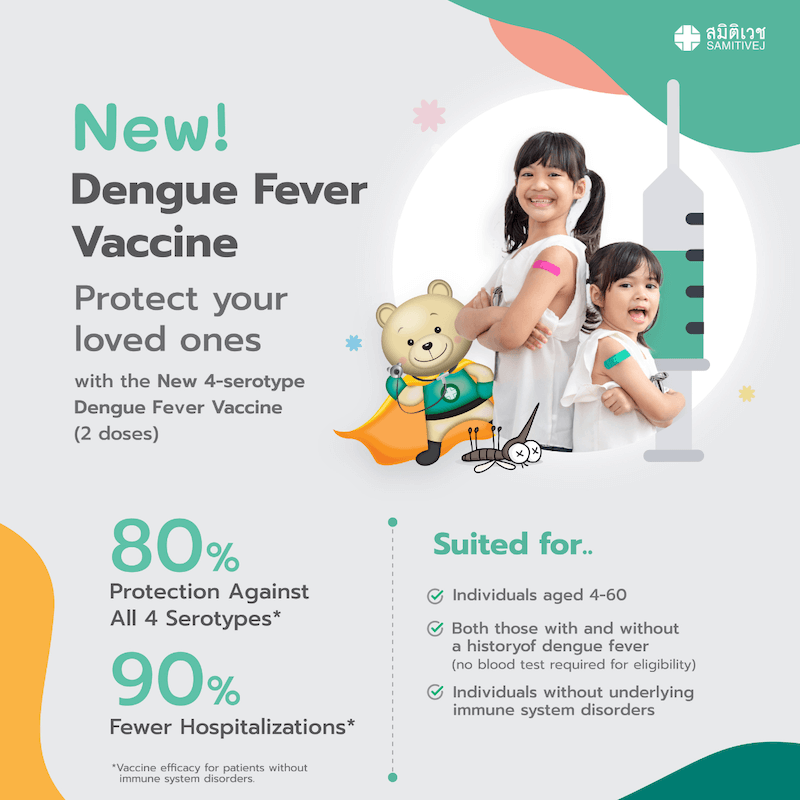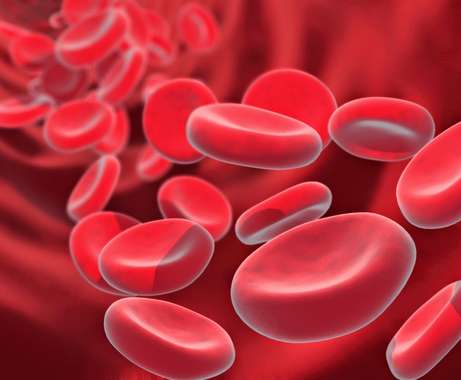Thalassemia is a genetic or inherited blood disorder that impacts the production of red blood cells, resulting in easy breakdown of such cells. It can affect men, women and children, and can be passed from parents to children through genes.
Approximately 1% of the Thai population is affected by thalassemia, and more than 30% of the population are carriers of the abnormal genes. Thalassemia carriers are generally healthy but can pass the abnormal genes to their children. Therefore in order to prevent the birth of a child with thalassemia, it is important to conduct a screening test before having a child. However, if you are pregnant and find out from a blood test that you have thalassemia genes, you should seek medical advice.
Symptoms of thalassemia include:
- Pale appearance
- Fatigue
- Abdominal swelling
- Enlarged spleen (marked splenomegaly)
- Yellow discoloration of skin (jaundice)
- Bone deformities in the face
- Slow growth
The signs and symptoms the patient experience may differ depending on the type and severity of thalassemia they have. Some of them show signs and symptoms of thalassemia at birth, while others may develop signs or symptoms during the first two years of life. Some people who have only one affected hemoglobin gene don’t experience any thalassemia symptoms.
Thalassemia is diagnosed through a genetic blood test and hemoglobin test. Although thalassemia treatment is difficult and time consuming, it can be cured with a “bone marrow transplant” by using stem cells from the donor that match both the DNA and Human Leukocyte Antigens (HLA) of the affected individual. The most preferable donor is the patent’s sibling who has matching HLA. If there is no HLA matched siblings available, an unrelated donor match will be a viable alternative.
A child who is born with severe thalassemia will face a lifetime of monthly blood transfusion. This was, patients will receive extra iron from the blood transfusions and this may lead to iron deposits in the liver, heart and pancreas.
The bone marrow is a blood-like tissue inside the bones. It produces new blood cells. These include red blood cells, which carry oxygen to the organs in the body; white blood cells, which help defend the body against infectious disease as part of the immune system; and platelets, which help the blood to clot. Thus, bone marrow abnormalities can be life-threatening. A bone marrow transplant, or today more commonly called a stem cell transplant, is a standard procedure used to treat a variety of both genetic and non-genetic blood diseases. This treatment has been used in Thailand for more than 20 years and treatment in Thailand provides the same effective outcome as in Europe and America.
Advice for patients with thalassemia:
- Eat a balanced and healthy diet with food from all 5 food groups
- Have a regular dental check-up every 6 months
- Avoid working too hard and playing too rough
- Do not take vitamins without medical advice
- Stay in areas that are well-ventilated so as to avoid infections
- See a doctor for treatment if you have a severe pain in your upper right abdomen, fever or jaundice
In order to avoid thalassemia, it is important for you and your partner to have a blood test for this serious disorder. People who are carriers of a thalassemia gene usually show no thalassemia symptoms and we cannot know if they are carriers without a blood test. Therefore, it is recommended to have a screening test before having a child to avoid passing the thalassemic gene to your offsprings.
With the progress in advanced medical technology, diagnosis, effective treatment and prevention for thalassemia, patients can be cared and implemented from infancy through childhood and adulthood. These will help thalassemic patients a better quality of life.
By Thip Sriphaisal, Prof. Emeritus Lt. Gen. M.D., Paediatric Haematologist and Oncologist at Samitivej Children’s Hospital, Sukhumvit Campus
Editor’s note: This article is sponsored content from Samitivej Children’s Hospital, and it is reprinted here with permission of the hospital.














